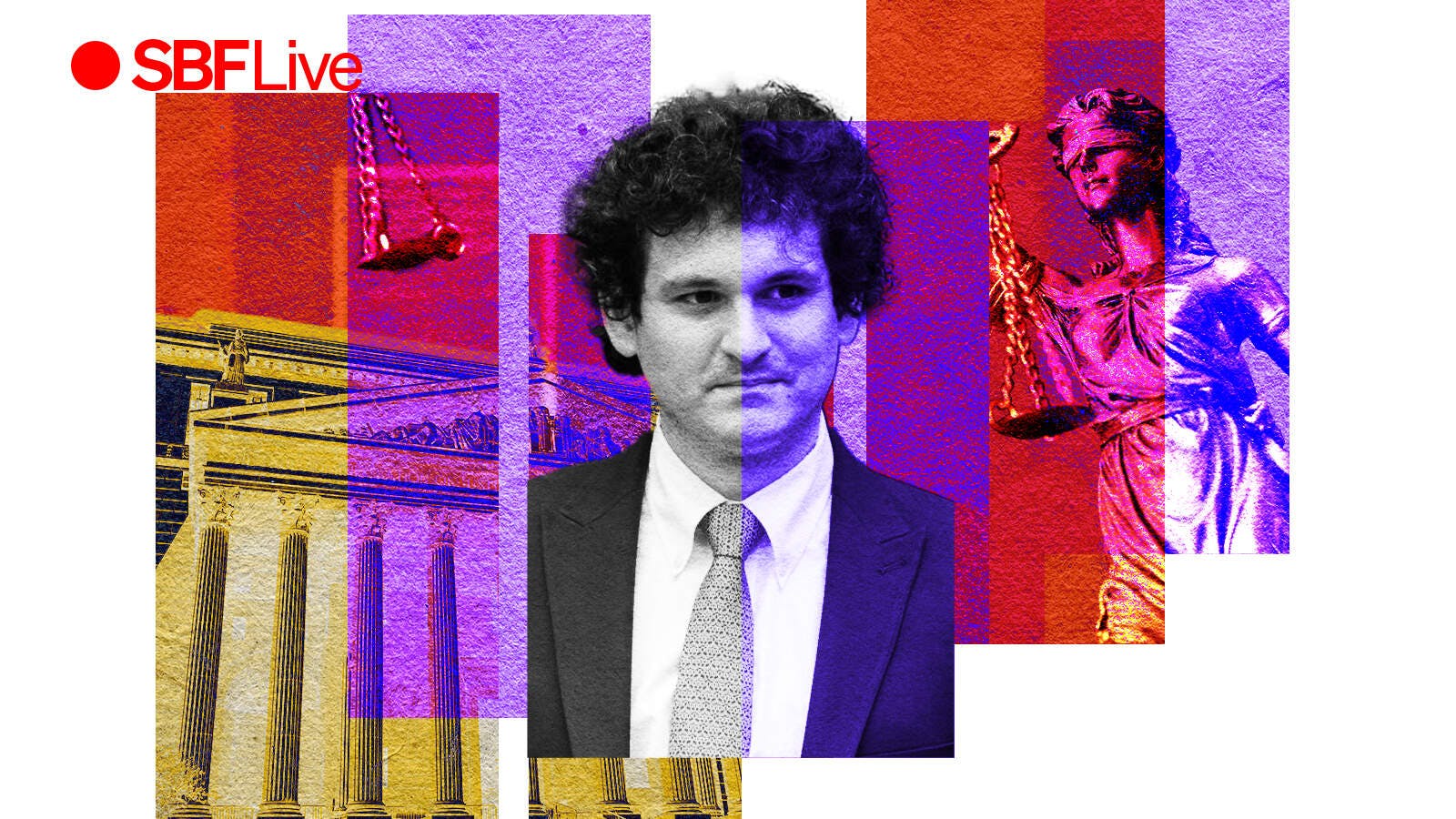FTX co-founder: ‘FTX was not fine. Assets were not fine.’
Former FTX CTO Gary Wang alleged that on days when a loss for FTX might have occurred, that loss was shifted over to Alameda

Artwork by Crystal Le
“FTX was not fine. Assets were not fine.”
That’s from Gary Wang, the former co-founder and chief technology officer who returned to the stand on Friday for the trial against Sam Bankman-Fried.
FTX’s collapse last November was, in part, publicized by former CEO Bankman-Fried’s own tweets. One of his most infamous — and since deleted — messages was issued less than a week before FTX declared bankruptcy. The message: “FTX is fine. Assets are fine.”
Wang told the court today that the substance of the tweet was false. An $8 billion hole existed at the heart of FTX’s balance sheet, with sister company Alameda Research on the hook for the loan. Bankman-Fried, according to Wang, was well aware of this debt when he tweeted.
Wang further testified that some customer assets were also simply “lost” while other funds were spent on investments.
Read more: Co-founder Wang says FTX code allowed Alameda’s ‘unlimited withdrawals’
The prosecution sought to use Wang’s testimony to demonstrate that many of Bankman-Fried’s public statements about the solvency of FTX, as well as risk exposure since the exchange launched, were lies. A clip of a Bloomberg podcast hosted by Matt Levine depicted Bankman-Fried bragging about FTX’s lack of exposure to liquidations — specifically, that FTX never had a day with blowouts greater than its revenue.
That wasn’t true, according to Wang. He alleged that on days when a loss for FTX might have occurred, that loss was shifted over to Alameda at Sam’s request.
Enter the Bahamian regulators
After FTX declared bankruptcy on Nov. 11, Wang stayed in the Bahamas with Bankman-Fried, according to his testimony.
During drives to and from the offices of the Bahamas Securities Commission on Nov. 12 — one day after the bankruptcy filing — Wang said Bankman-Fried told him to stall any transfers of assets to the US.
Instead, Bankman-Fried told Wang that they should send the assets to the Bahamian regulators because they appeared more “friendly.” Bankman-Fried got that impression, according to Wang, after meeting with them alongside his father, Joseph Bankman, and their lawyers.
Wang told the court that he ignored the advice of the US bankruptcy lawyer and followed Bankman-Fried’s orders — he transferred the FTX assets to Bahamian liquidators later that same day.
However, Wang then left Bankman-Fried in the Bahamas on Nov. 16. He later met with US officials on Nov. 17 to cooperate in the prosecution’s case against Bankman-Fried.
Wang told the court that he has no expectations that the government will reduce his sentence in light of his cooperation, but said that he hopes to avoid prison. Wang faces a maximum sentence of 50 years.
Get the news in your inbox. Explore Blockworks newsletters:
- The Breakdown: Decoding crypto and the markets. Daily.
- 0xResearch: Alpha in your inbox. Think like an analyst.






